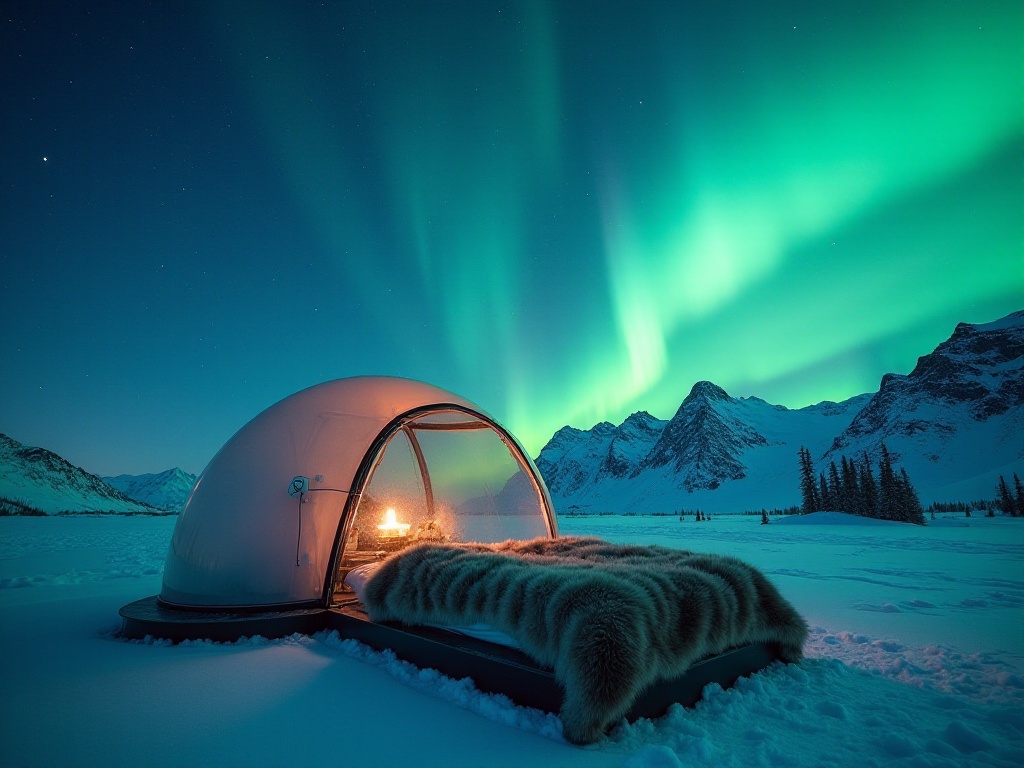
Introduction
As a travel blogger who has been to many places, I've stayed in countless hotels. From luxury to budget-friendly, from traditional to trendy, various accommodation experiences have given me deep insights into this industry. Today, I'd like to share my accumulated experience to help you find the most suitable accommodation for different scenarios.
To be honest, when I first started as a travel blogger, I thought accommodation was just about finding a place to sleep, and anything would do. But with more experience, I've realized that choosing the right accommodation not only makes travel more comfortable but can also bring unexpected experiences.
Hotel Selection
When it comes to accommodation, many people think of hotels first. But honestly, the concept of hotels is quite broad. From a star-rating perspective, there are five-star, four-star, down to budget hotels; from an operational model perspective, there are international chains, local brands, and independent operations. Each type has its characteristics and suitable scenarios.
Speaking of chain hotels, I must mention my stay at a Hilton in Manhattan, New York. The lobby alone was impressive. Massive crystal chandeliers sparkled overhead, marble floors gleamed like mirrors, front desk staff were impeccably dressed and courteous. The elevator had dedicated attendants to press buttons for you, and rooms were equipped with complete fitness equipment.
But after staying for a few days, I found these seemingly high-end services rather superfluous for me. I never had time for the gym, the pool was too crowded, and the business center was basically just for show. The daily facility fees felt wasteful. Later, I learned a lesson: choose hotels for practicality, don't be fooled by surface glamour.
For business trips, chain hotels' standardized service indeed has its advantages. For example, the Marriott hotels I frequently stay at maintain consistent service standards whether in Beijing, Shanghai, or Guangzhou. Room layouts are basically identical, facilities are complete, and even breakfast options are similar. This predictability is very important for business travelers.
But for leisure travel, I recommend choosing boutique hotels. While they might not be as standardized as large chain hotels in some details, they often bring pleasant surprises. I once stayed at a boutique hotel in Chengdu converted from an old courtyard house. Though it only had about twenty rooms, each room was unique. Some preserved the old house's brick carvings and wooden engravings, while others incorporated modern art elements. It didn't feel like staying in a hotel at all, more like living in an old house full of stories.
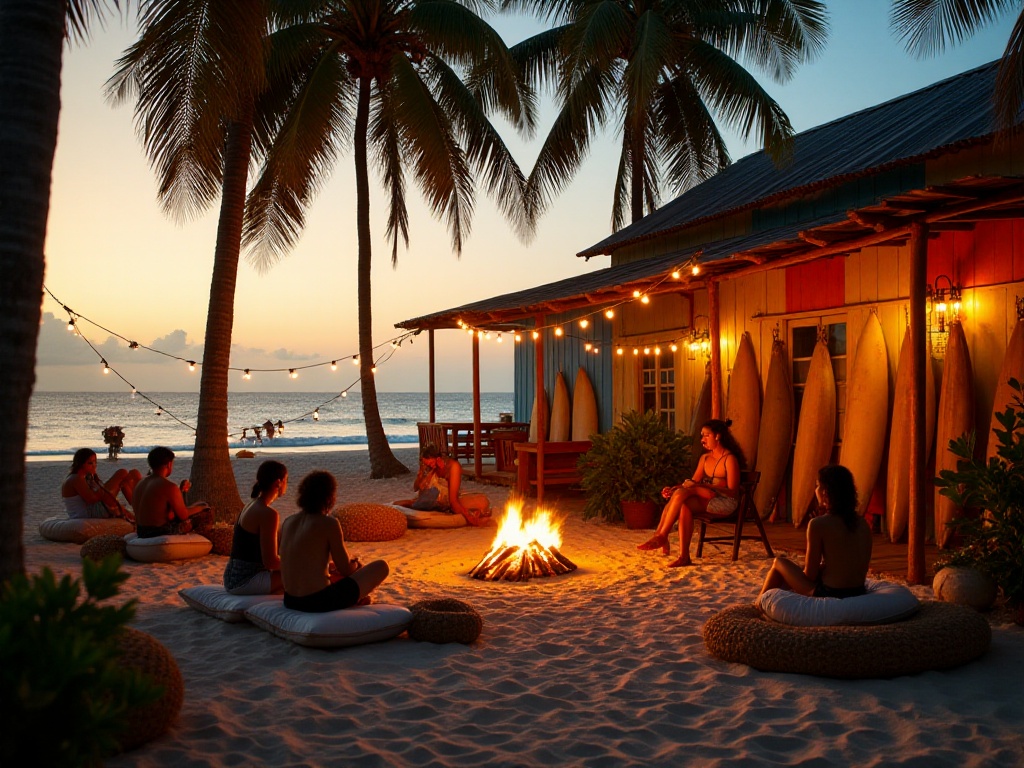
Motels
When it comes to practical and cost-effective accommodation choices, motels definitely deserve a mention. They were originally designed to serve road travelers, so they focus on practicality and convenience.
Last year when I drove along US Route 1, I stayed in motels almost every night. These motels are usually built right beside the highway, with parking spaces right outside the rooms - just a few steps from your car to your room. While the facilities can't compare to luxury hotels, they have everything you need: clean beds, hot showers, and simple breakfasts.
Most importantly, motels are very affordable. Along the California coast, you can find decent motels for four to five hundred yuan per night, while hotels in similar locations would cost at least a thousand. Many motels also have family rooms that can accommodate four people, perfect for friends traveling together by car.
Once near Las Vegas, I stayed at a distinctive motel. The owner was a motorcycle enthusiast who decorated each room with different motorcycle themes. My room was covered with Harley Davidson posters, and even the bedside lamps were made from motorcycle parts. Though not a luxury accommodation, this unique experience remains unforgettable.
However, motels do have their limitations. First, they're usually located in remote areas, which isn't convenient if you want to experience city life. Second, service is relatively simple - no room service or help with calling taxis or ordering meals. But if you're a traveler who values practicality, motels are definitely a good choice.

Boutique Accommodations
When it comes to accommodations that best reflect local character, boutique hotels are unmatched. These hotels are usually small in scale, but each has its unique theme and style.
I once stayed at a boutique hotel near Charles Bridge in Prague, converted from a medieval monastery. The historical atmosphere was indescribable. The stone corridor walls still bore centuries-old murals, and the rooms featured beautiful Gothic vaulted ceilings. Lying in bed at night, looking at the moonlight through ancient stained glass windows, felt like traveling back to the Middle Ages.
Most surprisingly, the hotel's basement was actually a small museum. The owner spent over twenty years collecting various medieval artifacts, from knight's armor to ancient instruments. Every evening, he would tell guests stories behind these artifacts. This kind of in-depth experience is something ordinary hotels simply cannot provide.
In Kyoto, Japan, I stayed at a Japanese-style boutique hotel. The entire hotel had only eight rooms, all arranged in traditional Japanese style. Tatami mats, shoji doors, yukatas - every detail exuded Japanese cultural refinement. Soaking in the private outdoor onsen at night, watching the zen garden, that serene and peaceful feeling made time seem to stand still.
Of course, boutique hotels usually aren't cheap. But considering the unique experiences they provide, I think they're worth it. Especially for travelers who want to deeply experience local culture, staying at boutique hotels is definitely a good choice.
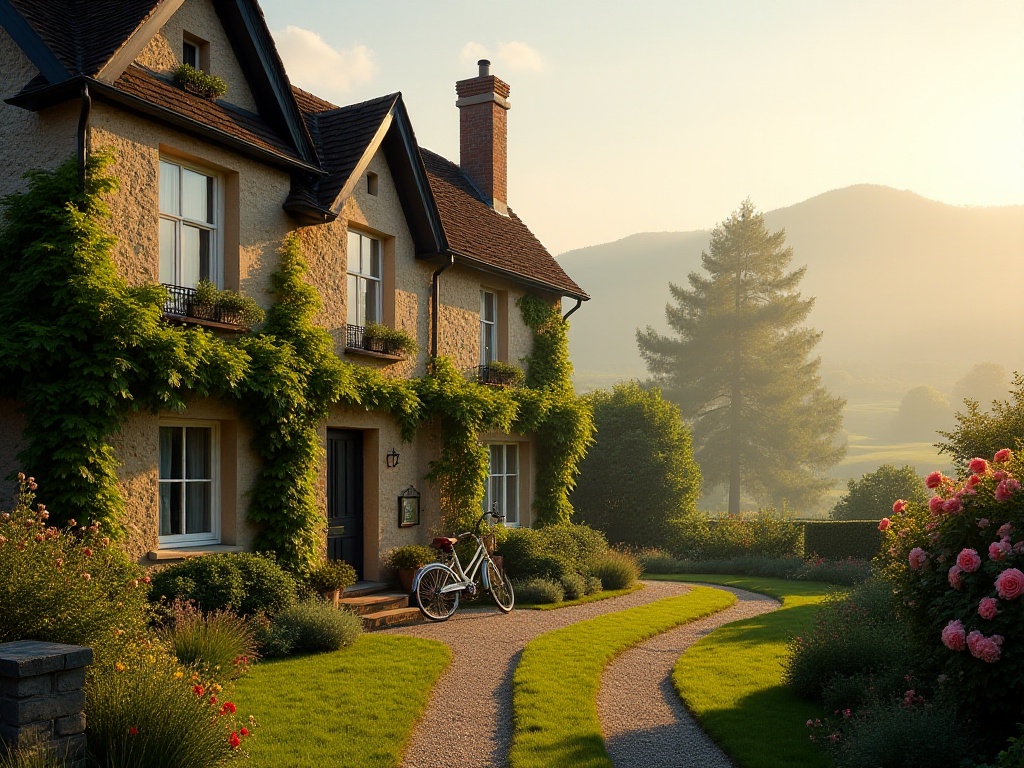
Homestay Experience
If you want to truly experience local life, homestays are the perfect choice. Compared to standardized hotels, homestays charm lies in their personal touch and living atmosphere.
Last summer, I spent a week at a farmhouse homestay in Tuscany, Italy. It was a 200-year-old house surrounded by vineyards and olive trees. The host was a warm Italian lady who made us breakfast every morning using vegetables and fruits from her garden. Fresh-baked bread, homemade jam, freshly picked fruit - just thinking about it makes my mouth water.
Most memorable was how the host involved guests in farm life. We followed her to pick grapes in the vineyard, learned to make pasta and pizza, and had barbecue parties in the courtyard at night. In just a week, I not only learned several authentic Italian dishes but also made friends from around the world.
In Hokkaido, Japan, I stayed at an onsen homestay. Though the room wasn't large, it had a private outdoor hot spring. Soaking in the hot spring while watching the snowy scenery was absolutely delightful. The host was a retired sushi chef who would prepare simple dinners for guests. Chatting over dinner, we learned many interesting stories about Japanese culture.
However, there are several things to consider when choosing homestays. First, the location might not be convenient, as many homestays are in remote places. Second, facilities might not match hotels, so you need to be mentally prepared. But if you want to experience the most authentic local life, homestays are definitely the best choice.

Apartment Rentals
For long-term travelers or families, apartment rentals are a very practical choice. They offer both the comfort of home and better value than hotels.
Earlier this year, I rented an apartment for a month in Montmartre, Paris. It was an old-style apartment, only 60 square meters but complete with everything. The kitchen had various cooking utensils for making meals; the living room had a comfortable sofa and TV for watching French programs to practice listening; there was even a small table on the balcony where I could drink coffee in the morning while looking at Paris's rooftops and the distant Eiffel Tower - it felt especially pleasant.
Most importantly, apartments offer great value for money. My apartment cost 20,000 yuan for a month, averaging less than 700 per day. In comparison, hotels in similar locations would cost at least 1,500 per night. Plus, being able to cook saves a lot on meal expenses.
In Vancouver, I rented an oceanview apartment with friends. Three bedrooms, perfectly comfortable for six people. We took turns cooking breakfast each morning, had barbecues on the balcony in the evening, watching Pacific Ocean sunsets - so much more comfortable than staying in a hotel.
Of course, there are things to watch out for when renting apartments. First, do your homework - check the host's reviews and actual photos of the property. Second, consider safety - preferably choose apartment buildings with security gates or guards. But as long as you pay attention to these details, apartment rentals are definitely the best choice for long-term travel.
Educational Accommodation
For international students or visiting scholars, accommodation provided by educational institutions is also a good choice. While perhaps not as luxurious as hotels, these accommodations are safe and reliable, and often close to schools.
Educational accommodation mainly comes in two types: self-catered and serviced. Self-catered accommodation is like a small apartment where you manage everything yourself. When I was a visiting scholar at Oxford University, I stayed in such an apartment. Though the room wasn't large, it had its own bathroom and basic kitchen equipment. Most importantly, you could arrange your life completely according to your own schedule, without restrictions from cleaning times or curfews.
Serviced accommodation is more like an upscale student dormitory, providing basic living services. I experienced this at The Grand Morillon at the Graduate Institute Geneva. Room cleaning and linen changes were provided weekly, along with 24-hour front desk service. Though more expensive than self-catered options, this type of guaranteed accommodation is more reassuring for students studying abroad for the first time.
Another advantage of educational accommodation is the ease of making friends. Everyone is either a student or scholar, so it's easy to find common topics. When I was at Oxford, I often cooked and chatted with other visiting scholars in my building, not only practicing English but also making friends from different countries.
Selection Advice
With so many accommodation choices, how should you choose? I suggest considering the following aspects:
First, look at your budget. If funds are sufficient, you can choose well-equipped hotels or distinctive boutique hotels. If budget is limited, motels or youth hostels might be more suitable. However, note that the most expensive isn't necessarily the best. Sometimes a well-located, value-for-money budget hotel might suit you better than a five-star hotel.
Second, consider length of stay. If you're only staying for a day or two, hotels are fine. But for stays of a week or longer, renting an apartment or staying at a homestay might be more economical and comfortable. In my experience, the longer you stay, the more important home-like accommodation becomes. Places where you can cook and do laundry offer a higher quality of life.
Third, consider your travel purpose. For business trips, location convenience and complete facilities are most important. Hotel amenities like conference rooms and business centers become very important. For vacations, the uniqueness and experience of accommodation matter more. A distinctive boutique hotel or authentic homestay might bring unexpected pleasant surprises.
Number of travelers is also an important factor. Traveling alone offers more flexibility in choices, but family trips or group travel require considering more factors. For example, you need enough space, preferably with common areas, and ideally the ability to cook. In such cases, renting a large apartment is often the best choice.
Seasonal factors should also be considered. During peak season, accommodation in popular tourist areas is often hard to book and prices soar. Consider staying in surrounding towns and commuting to attractions. In off-season, you have more choices and can take advantage of normally unaffordable luxury hotels.
Finally, there's safety. Whatever accommodation you choose, safety always comes first. Choose places with good reviews and safe locations. For women traveling alone, hotels or apartments with 24-hour front desks are recommended.
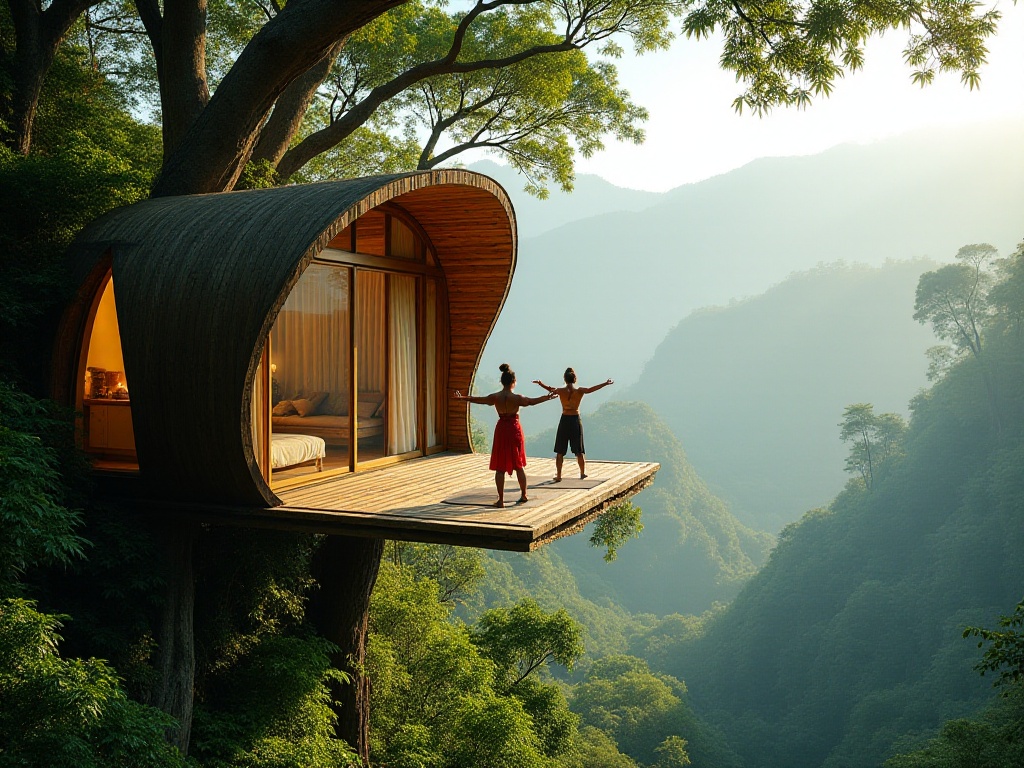
Concluding Thoughts
After years of travel, I increasingly feel that accommodation isn't just about solving where to sleep - it's an important part of the travel experience. Good accommodation not only helps you rest better but also gives you a deeper understanding of local lifestyles.
Accommodation options have indeed become more diverse. Ten years ago, traveling meant basically choosing between hotels or inns. But now? From luxury hotels to unique homestays, from rental apartments to capsule hotels, there are so many choices. This diversity gives us more possibilities, allowing us to choose the most suitable accommodation based on different needs.
However, ultimately there's no best accommodation, only the most suitable choice. What's important is deciding based on your specific situation. Budget, time, purpose, number of travelers - these are all factors to consider.
By the way, if you have any special accommodation experiences, feel free to share in the comments. Everyone's experience is unique, and your story might inspire other friends planning their travels.
Next
Budget-Friendly Hostels in Southeast Asia: A Solo Traveler's Guide
Ah, Southeast Asia! The land of vibrant street markets, ancient temples, and pristine beaches. But for the solo traveler, it's so much more – it's a playground of self-discovery, cultural immersion, and unforgettable connections. And at the heart of this solo adventure? Hostels, my friends. These budget-friendly havens are the unsung heroes of the backpacker trail, offering not just a place to rest your head, but a launchpad for epic journeys.
From Hostels to Luxury Hotels: A Backpacker's Global Accommodation Guide
A comprehensive guide to accommodation options, covering traditional hotels, boutique hotels, B&Bs, self-catering units, as well as specialty lodging like mountain cabins, resorts, and alternative options including home exchange and work exchange programs
The Great Escape: Hotels Bask in Summer's Radiant Glow
In a world once silenced by the echoes of empty lobbies and vacant rooms, a new symphony of rolling luggage and excited chatter is rising. The hotel industry, long battered by the storm of a global pandemic, is finally seeing the sun peek through the clouds. As we stand on the precipice of a travel renaissance, local hotels are witnessing a surge in occupancy rates that's nothing short of miraculous.
Next
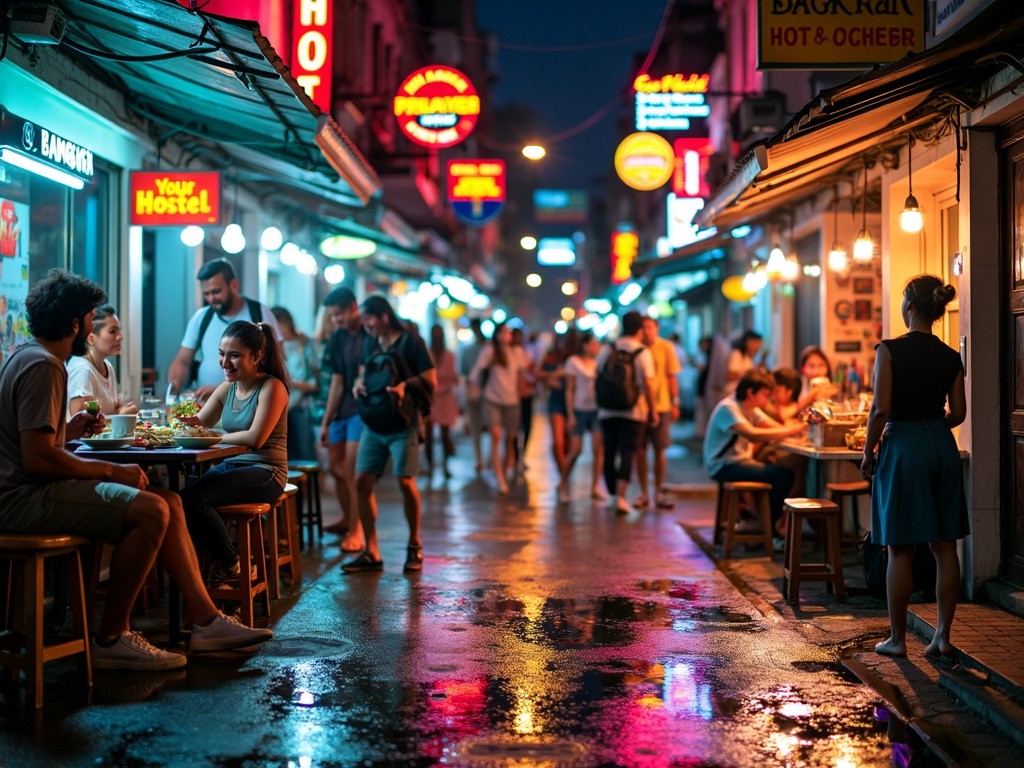
Budget-Friendly Hostels in Southeast Asia: A Solo Traveler's Guide
Ah, Southeast Asia! The land of vibrant street markets, ancient temples, and pristine beaches. But for the solo traveler, it's so much more – it's a playground of self-discovery, cultural immersion, and unforgettable connections. And at the heart of this solo adventure? Hostels, my friends. These budget-friendly havens are the unsung heroes of the backpacker trail, offering not just a place to rest your head, but a launchpad for epic journeys.
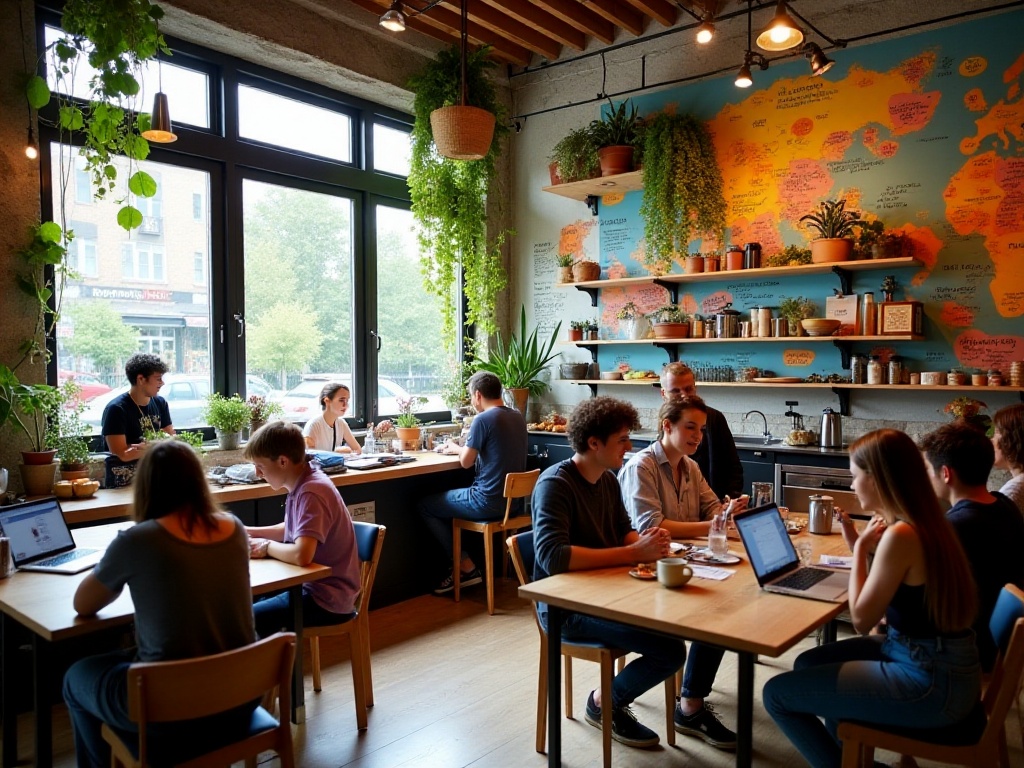
From Hostels to Luxury Hotels: A Backpacker's Global Accommodation Guide
A comprehensive guide to accommodation options, covering traditional hotels, boutique hotels, B&Bs, self-catering units, as well as specialty lodging like mountain cabins, resorts, and alternative options including home exchange and work exchange programs
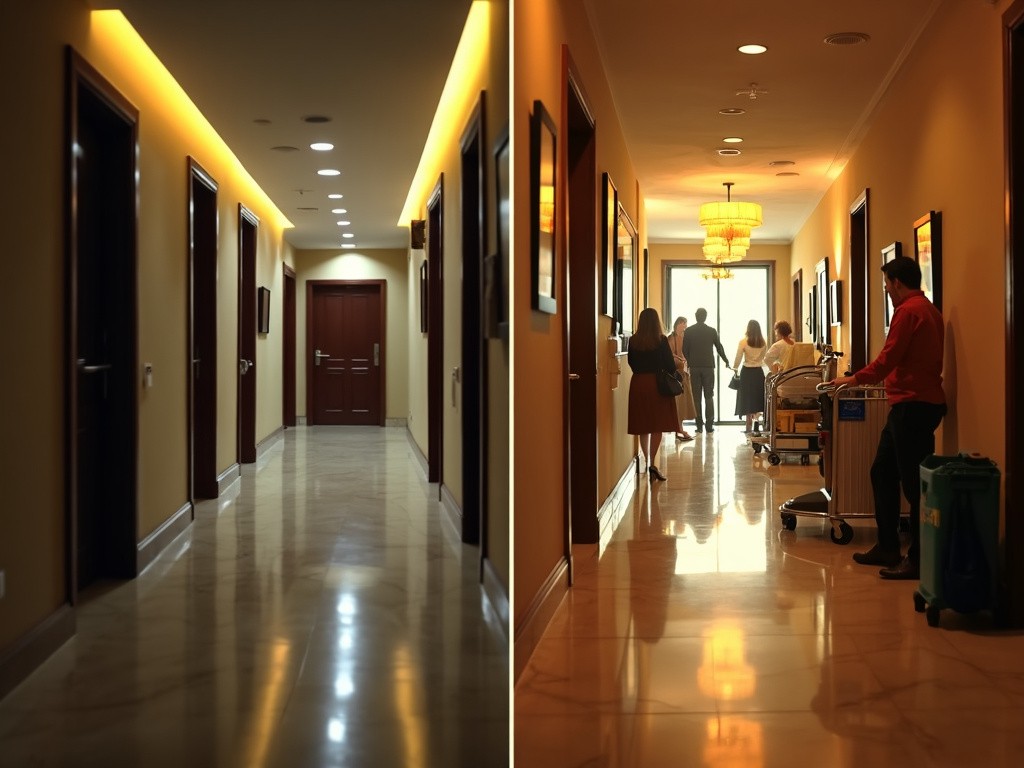
The Great Escape: Hotels Bask in Summer's Radiant Glow
In a world once silenced by the echoes of empty lobbies and vacant rooms, a new symphony of rolling luggage and excited chatter is rising. The hotel industry, long battered by the storm of a global pandemic, is finally seeing the sun peek through the clouds. As we stand on the precipice of a travel renaissance, local hotels are witnessing a surge in occupancy rates that's nothing short of miraculous.


